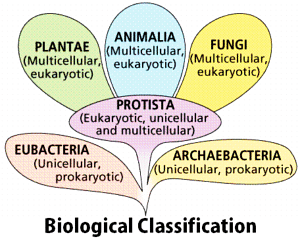Viroids differ from viruses in having:
Viroids differ from viruses in having:
Show Hint
Viroids are sub-viral agents as infectious RNA particles, without a protein coat. On the other hand, viruses possess DNA or RNA with a protein coat as their genetic material. While viruses can infect a wide range of organisms including plants, animals, or bacteria, viroids infect only plants.
- DNA molecules without protein coat
- RNA molecules with protein coat
- RNA molecules without protein coat
- DNA molecules without protein coat
The Correct Option is C
Solution and Explanation
Viroids differ from viruses in having RNA molecules without protein coat.
A virus is an infectious microorganism that comprises a segment of nucleic acid surrounded by a protein coat. On the basis of Genetic material, the virus is of two types, either DNA containing or RNA containing. Whereas viroid is infectious, highly structured small circular ribonucleic acids (RNAs) but does not contain protein as an outer covering.
Therefore, the correct option is option (C) RNA molecules without protein coat.
Top Questions on biological classification
- Which of the following microorganisms is used in the production of curd from milk?
- MHT CET - 2025
- Biology
- biological classification
- In a DNA molecule, which of the following base-pairings is correct?
- MHT CET - 2025
- Biology
- biological classification
- Which is not a prime element?
- MHT CET - 2025
- Biology
- biological classification
- Study the following and choose the incorrect combinations:
I. Phylum: Porifera, Special cells: Lasso cells, Example: Spongilla
II. Phylum: Cnidaria, Special cells: Stinging cells, Example: Hydra
III. Phylum: Ctenophora, Special cells: Choanocytes, Example: Pleurobrachia
IV. Phylum: Platyhelminthes, Special cells: Flame cells, Example: Fasciola- TS EAMCET - 2025
- Zoology
- biological classification
- Study the following and choose the correct combinations:

- TS EAMCET - 2025
- Zoology
- biological classification
Questions Asked in NEET exam
- Two cities X and Y are connected by a regular bus service with a bus leaving in either direction every T min. A girl is driving scooty with a speed of 60 km/h in the direction X to Y. She notices that a bus goes past her every 30 minutes in the direction of her motion, and every 10 minutes in the opposite direction. Choose the correct option for the period T of the bus service and the speed (assumed constant) of the buses.
- NEET (UG) - 2025
- Relative Velocity
- A physical quantity P is related to four observations a, b, c, and d as follows: P = a3 b2 (c / √d) The percentage errors of measurement in a, b, c, and d are 1%, 3%, 2%, and 4% respectively. The percentage error in the quantity P is:
- NEET (UG) - 2025
- Dimensional analysis and its applications
What is Microalbuminuria ?
- NEET (UG) - 2025
- Human physiology
The output (Y) of the given logic implementation is similar to the output of an/a …………. gate.

- NEET (UG) - 2025
- Logic gates
- An oxygen cylinder of volume 30 litre has 18.20 moles of oxygen. After some oxygen is withdrawn from the cylinder, its gauge pressure drops to 11 atmospheric pressure at temperature \(27^\circ\)C. The mass of the oxygen withdrawn from the cylinder is nearly equal to: [Given, \(R = \frac{100}{12} \text{ J mol}^{-1} \text{K}^{-1}\), and molecular mass of \(O_2 = 32 \text{ g/mol}\), 1 atm pressure = \(1.01 \times 10^5 \text{ N/m}^2\)]
- NEET (UG) - 2025
- Ideal-gas equation and absolute temperature
Concepts Used:
Biological Classification
The process of grouping living organisms into categories is called biological classification. The most modern 5-kingdom classification was put ahead by an eminent scientist R.H.Whittaker. The five-kingdom classification is based on the criteria like cell structure, mode of nutrition, body form, and reproduction. One of the most important characteristics of this system is that it follows the evolutionary sequence of living organisms. The organisms are classified into distinct taxa or levels like Kingdom, Phylum, Division, Class, Order, Family, Genus, and Species. The 5 kingdoms are as follows:
